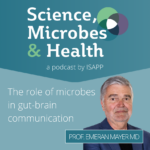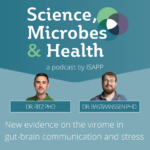Planning a Biotics Study? New Publication Recommends Adding Diet as a Variable
By Prof. Maria Marco PhD and Prof. Kevin Whelan PhD
In studies on probiotics, prebiotics, and other biotics, the demonstrated health effect may depend on the personal characteristics and habits of the study participants. Take the following scenario: Person A and Person B consume the same prebiotic supplement. Person A typically eats a Mediterranean-style diet, meeting daily fiber requirements by consuming various fruits, leafy greens, nuts, and seeds daily. Person B eats mostly convenience foods that are low in fiber – pastries, fried foods, and frozen dinners. Is the prebiotic likely to have the same effect in both individuals?
The possibility that a prebiotic may have different effects in these two individuals seems intuitive. A plausible scenario is that the gut microbiome of Person A is enriched for bacterial species that feed well on the the prebiotic substrate and therefore is “primed” for more robust responses to prebiotic intake; Person B, on the other hand, doesn’t have the target bacterial species and therefore receives limited benefit from the prebiotic.
Both dietary patterns and specific foods are known to affect the digestive tract environment, either directly or indirectly (for example, by shaping the gut microbiome), and are therefore of interest as potential factors in the response of an individual to a biotic intervention. Surprisingly in the scientific literature, however, diet has been almost completely overlooked as a potential contributor to the effectiveness of probiotics and prebiotics.
In 2022 we gathered an international group of experts to discuss whether diet is potentially an important factor contributing to the efficacy of biotics. The result of our discussions was recently published as a Perspective in Nature Microbiology.
Evidence for how diet affects biotic efficacy
When our group reviewed the literature, we found surprisingly few examples of biotic clinical trials in which the researchers had gathered data on the background diet of the participants. Yet from the studies we did find, dietary influences on biotic efficacy are promising for future study. In one trial of a probiotic in participants with metabolic syndrome, dietary characteristics differentiated responders and non-responders. And in a prebiotic trial, participants who consumed more fiber at baseline had a more marked gut microbiota response and reported feeling fuller than those with lower fiber intake.
Our group members pointed out that, although the gut microbiome itself has increasingly been measured in biotics studies, microbiome features don’t capture the full picture of why someone responds to a biotic intervention. Diet may affect the efficacy of a biotic intervention through microbiome-mediated mechanisms or via other effects on the host, such as alterations in digestive function.
Recommendations for biotics trials
Our group agreed that including dietary data as a matter of course in biotics trials is a crucial way to move the field forward and continue to understand how biotics work in different individuals. From our extensive discussions and follow-up, we came up with ten recommendations for future studies on biotics to account for the effects of diet on biotic efficacy:
- Consider whether and how to harmonize the diet of your study population before intervention.
- Ideally, participants should not be involved in a biotic trial over religious festivals or holidays during which dietary intake can be dramatically altered.
- The composition of the prebiotic (structure, degree of polymerization, source and purity) or probiotic (for example, strain), as well as the structure and composition of the delivery matrix, should be reported.
- Details of prebiotic or probiotic intake (number of doses, timing, whether taken with or between meals and consumed with which foods) should be reported.
- Appropriate microbiome analyses should be performed to disentangle the specific effect of the intervention versus background diet.
- Dietary assessment should be performed during screening (if it is a requirement of inclusion), at baseline and at the end of an intervention.
- Dietary assessment should record intakes of microbiome-relevant dietary exposures where possible and feasible.
- Dietary assessment should be relevant to the hierarchical ontology of the dietary exposure of interest (for example, nutrient, food, food group or dietary pattern).
- The method and duration of dietary assessment should depend on the research question and the exposure of interest.
- A dietitian or nutritionist with expertise in microbiome research and dietary assessment should be included in the research team.
We acknowledge that in some cases implementing these recommendations will result in additional costs for a biotic trial, but we think these costs will be well justified given the potential to show stronger effect sizes, reduce unnecessary trials, and zero in on the populations that will benefit from a given biotic intervention.
The future of biotics
At this stage in the field of biotics, the literature indicates that demonstrating the efficacy of a biotic intervention through a clinical trial must take into account the complexity of individual participants – not just demographic factors, but also lifestyle factors such as diet. We believe that background diet may be a critical factor in determining biotic effectiveness, and thus should be included in as many future biotic studies as possible. By accounting for the influence of diet, scientists studying biotics may be able to show stronger and more targeted health benefits, allowing more personalized and effective interventions.







